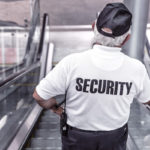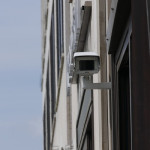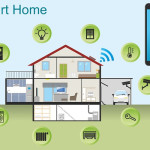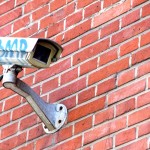Security Measures For Large Events
With the big game going down this Sunday, security for large-scale events is on our minds. Unfortunately, heavily publicized events that draw substantial attendance and large crowds tend to be prime targets for attacks and incidents. Luckily, proper security measures can prevent dangerous incidents from escalating further, or, ideally, from even happening at all. Here are a few things to keep in mind when it comes to event security.
- Security Posture
It is crucial to make security efforts visible. Bag checks, vehicle-free zones, and uniformed personnel make all the difference. - Constant Vigilance
Security personnel should be prepared to handle the crowd beforehand and screen every guest that enters, but security measures should remain in place throughout the entire event. It may be feasible to reduce some personnel when a majority of attendees have entered, however, no one should be able to enter the facility at any time without going through the same screening as everyone else. Once the event is underway, it makes it easier for potential attackers to move without being noticed. - Outdoor Security
If you uphold strong indoor security, an attacker may decide to carry out his actions outside. This makes it vital to maintain additional security measures around the perimeter and beyond (ex. mass transit connections, tailgate areas, merchandise locations). Typically, perpetrators will target large, dense gatherings of people. Spreading out locations to disperse crowds with ample security personnel makes it difficult for attackers to select a prime target. - Layers Of Security
As you may already tell, several layers of security are crucial. For example, your first layer of security may be traffic control personnel, who limit vehicle access to the venue and can watch for suspicious activity and individuals. Another layer may be personnel looking for potential criminal behavior in parking lots or directly outside the venue. Next would be the bag checks, magnetometers, and pat-downs to ensure prohibited items stay out of the venue. On the inside, you want to monitor the activities and prepare for the appropriate response, such as getting individuals to exits safely and getting emergency responders to the scene of an incident quickly. - Communication
Keep attendees informed about prohibited items and any other policies and rules before the event. These communications can be distributed with the help of ticketing outlets and public media. Getting this information out beforehand will help security lines and bag checks move smoothly and quickly, decreasing traffic and delays at the entrances. - Offsite Security Command Center
It makes sense to maintain a security command center onsite so that it is easy for people to find them if necessary. However, perpetrators know they can inflict more damage if they take down the command and communications center first. To combat this, while still maintaining an office within the venue, many facilities are moving the main command center offsite. By doing so, should an incident occur and the onsite center is compromised, security will still have eyes and means of communicating with the security personnel on site and still coordinate an appropriate response.
Tragic events over the years have forced us to reevaluate and tighten our security measures to keep the public safe. Now more than ever, security and emergency response personnel must work together to prevent and respond to major incidents. As an attendee, remember to be aware of your surroundings, and if you see something, say something.
For affordable, quality security systems, visit SecurityCamExpert.com or call 888-203-6294! We are happy to provide you with a free quote, schedule a site survey, or assist you with any questions you may have. You may also connect with us on Facebook, Google+, Twitter, LinkedIn, and Pinterest.
Wired Security Cameras Vs. Wireless Security Cameras
Security cameras offer great benefits for various settings. From protecting your business or property to keeping an eye on nursing homes or daycare centers, surveillance camera systems can be incredibly helpful.
The extensive surveillance market is like a double-edged sword. While there is likely a security solution for nearly every need, sorting through the options to find the best security solution for you can be seemingly endless. However, with the proper approach and assistance, you can find a suitable surveillance system in a timely manner.
When shopping for security camera systems, it is best to evaluate your needs and research which solutions may better suit you. For example, choosing between wired or wireless security cameras can be determined by weighing their advantages and disadvantages, while understanding how these can play into your specific requirements.
To help you choose which is better for you, here are some basic pros and cons of both wired and wireless security cameras.
Wired Security Cameras
Pros
- Video is transmitted straight to your recorder with no interference from other wireless devices.
- A wide variety of camera styles are available.
- Wired cameras make it impossible for the signal to be jammed.
- IP-based wired cameras can provide video resolutions at High Definition and beyond, transmitting large amounts of data over CAT5 cabling.
Cons
- Installation involves wiring (and likely conduit), making it a lengthier and more complicated process.
- Changing the location of your cameras requires rewiring, thus providing less flexibility.
Wireless Security Cameras
Pros
- The absence of wiring enables an easier installation process.
- More flexibility in terms of relocating cameras.
- Wireless cameras can connect to your existing Wi-Fi network.
Cons
- Depending on the range of your Wi-Fi network, connectivity issues may arise.
- Picture quality is not as good as wired cameras provide.
- Crowded frequency (due to the overlapping of other wireless networks or channels) can lead to dropped signals, interference, and lost video.
- Frequency issues make these generally less reliable than wired cameras.
- If cameras are used outdoors, signal may be lost during inclement weather.
Other things to consider include the structure of your property or building and the location of power sources. While some may prefer strictly wired solutions, and others choose wireless, it is possible to create a hybrid system, incorporating both wired and wireless cameras. It is best to consider different options before deciding on a security system.
Let us help you create the best security camera system. Browse our stock online at SecurityCamExpert.com or call 888-203-6294 to discuss your options. You can also connect with us on Facebook, Google+, Twitter, LinkedIn, and Pinterest.
Smart Homes: Proceed With Caution
Some people may opt for traditional security cameras for home security, but the landscape is changing. The emergence of connected devices has spurred the popularity of smart homes and the Internet of Things (IoT). However, as we connect more technologies and devices, we may be putting ourselves at a greater risk.
Internet of Things
Most people have heard of the term, but those who haven’t may not even realize they are a part of it. Whether you own a smartphone, smart TV or even a tablet, you are connected to the Internet of Things. And if you are investing in smart home appliances, you are absolutely connected.
Because of this, smart homes tend to be more susceptible to threats thanks to the lax cybersecurity measures (if at all) of most smart appliances. Even if other devices, such as smart thermostats, garage doors, or fire alarms, may have stronger security measures, if they share the same network as other, less secure appliances they are vulnerable to exposure and attacks.
In order to protect users and their own reputations, smart appliance manufacturers must take cybersecurity measures seriously. For your own safety, research the products you are interested in and be sure that their security measures meet or exceed your expectations.
Basic Security
One of the main problems with smart security technology is the do-it-yourself approach. Most consumers are drawn to DIY solutions because they seem to be more cost-effective, user-friendly, and cut out the need for professional installation. Unfortunately, mistakes made by the user could further compromise their security.
While these smart technologies indeed promote security and convenience, you may want to tread lightly. Consider the pros and cons of transitioning your home into a smart home and be sure to do your research and take the necessary precautions to ensure that your devices and systems are as secure and up-to-date as possible.
If you are weary of these smart security measures, you can always go the traditional route with security cameras and CCTV surveillance systems. Visit SecurityCamExpert.com to shop our selection or call 888-203-6294 for more information and a free quote! You can also find us on Facebook, Google+, Twitter, LinkedIn, and Pinterest.
Protect Your Vacant Property
Think an empty building doesn’t need maintenance or security? Think again. Unoccupied buildings tend to be more susceptible to damage and criminal activity than those filled with expensive equipment. If your property will be vacant, whether long or short term, you should secure it as soon as possible.
Main Risks For Empty Buildings
- Weather
We all know that weather can cause significant damage relatively quickly, especially for buildings in areas known for inclement weather. Damage to the exterior, including the roof and windows, can also make its way inside to cause further problems.
- Thieves
If you leave equipment or anything of value in an unsecured building, you run a high risk of theft. Even if you’ve emptied the property, thieves may still enter and steal valuable construction materials (ex. copper pines or wires).
- Vandals
Even though you may have cleared out your property, you are still at risk for vandalism. Vandals may trash your property by leaving waste, breaking things, and covering walls in graffiti.
- Trespassing
This covers a number of threats, which include squatting and illicit activities.
How To Secure Your Vacant Property
- Secure Entrances
Before vacating a property, be sure that all windows and doors are properly closed and locked. Look for gaps or damage to the frames that may allow wind, rain, or intruders to get in.
If you plan on leaving for an extended period of time, you should consider investing in stronger methods of securing doors and windows. While traditional wood boarding may be cost-effective, these have also added to the blaze of an arson attack. Investing in a metal alternative may be a better choice. You may also want to consider steel security doors which make it impossible to access your building without special equipment.
- Maintain Exteriors
Any loose objects can be stolen, used to gain entry, or used as a weapon. For example, bins, palettes and spare construction materials can quickly turn into projectiles in the wrong hands, or can be picked up by high winds in a storm. Be sure to store large objects indoors or out of sight.
Landscaping may be an afterthought, but can make a difference. You should keep pathways clear of debris, such as snow and ice in the winter, and trim grass and hedges to deter vermin from inhabiting your yard. Landscaping also makes it appear that the premise is occupied, making it less of a target.
- Check The Alarms
A security alarm is a necessity. A security alarm system can deter intruders, and, if linked to the local police, can elicit immediate response to any incidents. If you vacate your building, be sure to check your system regularly to ensure that it is functioning properly. If your system is managed by a third party, be sure to inform them of your absence.
Because a fire, whether intentional or accidental, is always possible, you should also maintain your fire alarm and sprinkler system. Be sure that pipes and sensors remain functional.
- Increase Passive Security
While dummy cameras can be a reasonable deterrent for those on a budget, operational security cameras may be a better investment. If you plan on leaving your property vacant for a longer period, you may want a real security camera to record any trespassers or criminal activity that occurs while you’re gone.
It may behoove you to make your property physically harder to access, especially if you have open spaces. Fencing and gates with proper locks and concrete barriers are effective ways to keep intruders out.
- Hire Active Security
If you will be storing valuable equipment and materials on site during your absence, you may want to hire professional guard control or even guard dogs and handlers. You can schedule the guard to check on your building at random times to keep trespassers away and to report any unusual activity.
If a building is scheduled for future renovation or demolition, registering your building for a guardianship scheme could be a more cost-effective solution. While you won’t be able to freely access your building when the guards are there, but it will safeguard against trespassers and squatters.
How do you protect your vacant property? Share your tips on Facebook, Google+, Twitter, LinkedIn, and Pinterest.
Find quality security cameras and CCTV surveillance systems when you shop at SecurityCamExpert.com! Visit us online or call 888-203-6294 to learn more about our services, including installation and support.
Safeguard Your Security Cameras
These days, most of our devices are connected thanks to the Internet of Things. While this can make things more convenient for us, it can also leave us vulnerable to hackers.
There have been many public stories about cyber attacks and spying, from hacked baby monitors to internet outages. And while we may never see an end to cyber criminals, this proves that we can never be too cautious.
These unfortunate hacks can occur from unsecure Wi-Fi connections, open devices (no passwords), or malware attacks. Luckily, there are ways to combat attacks and minimize our risks.
Heed these cyber security tips that may apply to security cameras, webcams, as well as baby and pet monitors.
- Keep Your Internet Private
Employ a full-service security suite for your internet and keep it up to date. Use a strong, unique password and encryption to protect your network.
- Create Secure Passwords
Always change the default password that comes with your wireless networks and any of your devices. When choosing a password, remember to incorporate numbers, capital letters, and, when allowed, multiple punctuation marks. You should also try to use 12 digits, and avoid names, places, or anything that can easily be guessed. To ensure you’ve created strong and secure passwords, use a password checker.
- Keep Software Up-To-Date
As stated previously, keep all your devices and software updated as these help to patch any known or found vulnerabilities that allow hackers to gain access. Although this simple step can easily be overlooked, it is important to stay on top of these updates.
- Cover Cameras When They Are Not In Use
If your camera indicator light goes on without your permission, you can assume that your computer has been compromised. However, just because the light is off, you cannot assume that your camera is safe. Researchers have found that hackers can infiltrate and turn on webcams without activating the indicator light.
To err on the side of caution, keep your cameras covered. There are different types of patches, stickers, devices, and other products on the market that you can use. However, for an immediate fix, masking tape will suffice.
- Don’t Click That Suspicious Link!
If there is any uncertainty, do not click the link. Only download attachments or click on links from people you know and trust. If you were not expecting a message or attachment from a trusted person, be sure to check with them before opening or downloading anything.
- Avoid Using Unsecured Wi-Fi
Public Wi-Fi networks are prone to hackers so avoid them when you can.
- Check Your Camera Log
If your security system permits (most do), check the IP addresses that have accessed your cameras. If you find any suspicious IP addresses on your log, be sure to change your access codes right away and notify your security company.
- Manage Cameras Settings
Network connected security cameras allow you to remotely monitor your cameras via an app or a website. If you do not need this feature, turn it off.
- Consider A Separate Network
It may be beneficial to have one network for your phone and computers and another network solely dedicated to your security systems and other monitors.
Being an educated consumer will minimize your risk of becoming a victim. These security precautions promote safe use of personal technology and can go a long way for your cyber security. Connect with us on Facebook, Google+, Twitter, LinkedIn, and Pinterest to share your own cyber security tips.
Need quality security cameras and CCTV surveillance equipment? Look no further than SecurityCamExpert.com! Call 888-203-6294 to schedule a free* site survey, request a quote, or inquire about our installation services.




